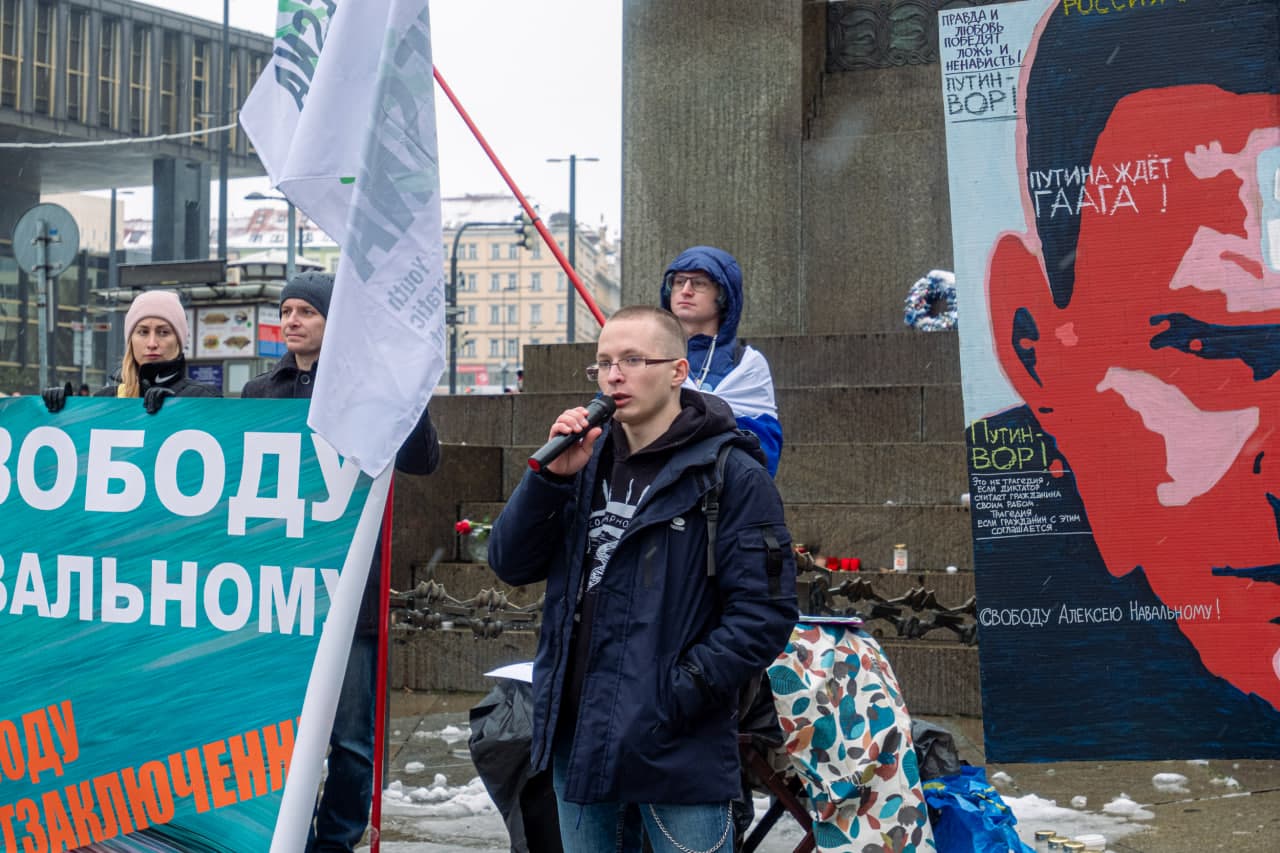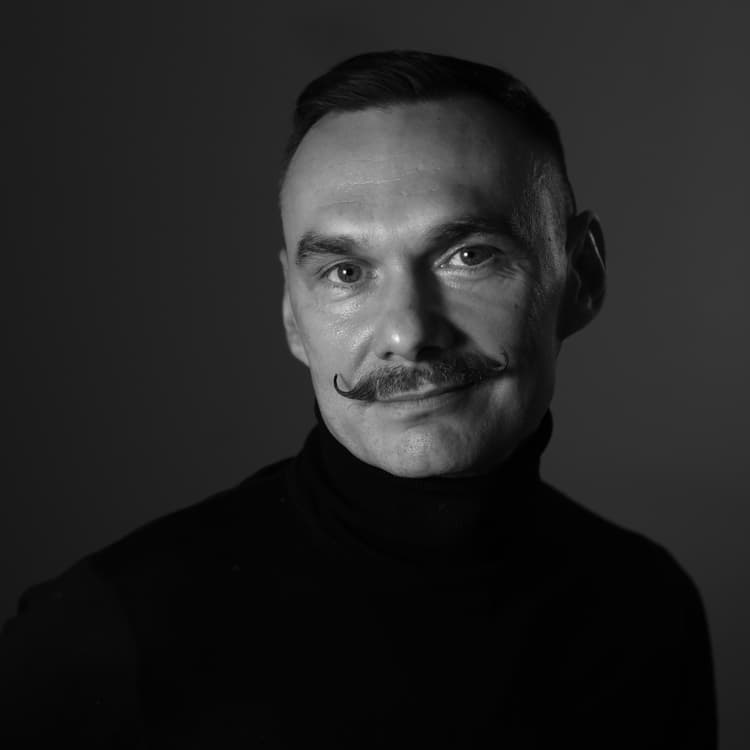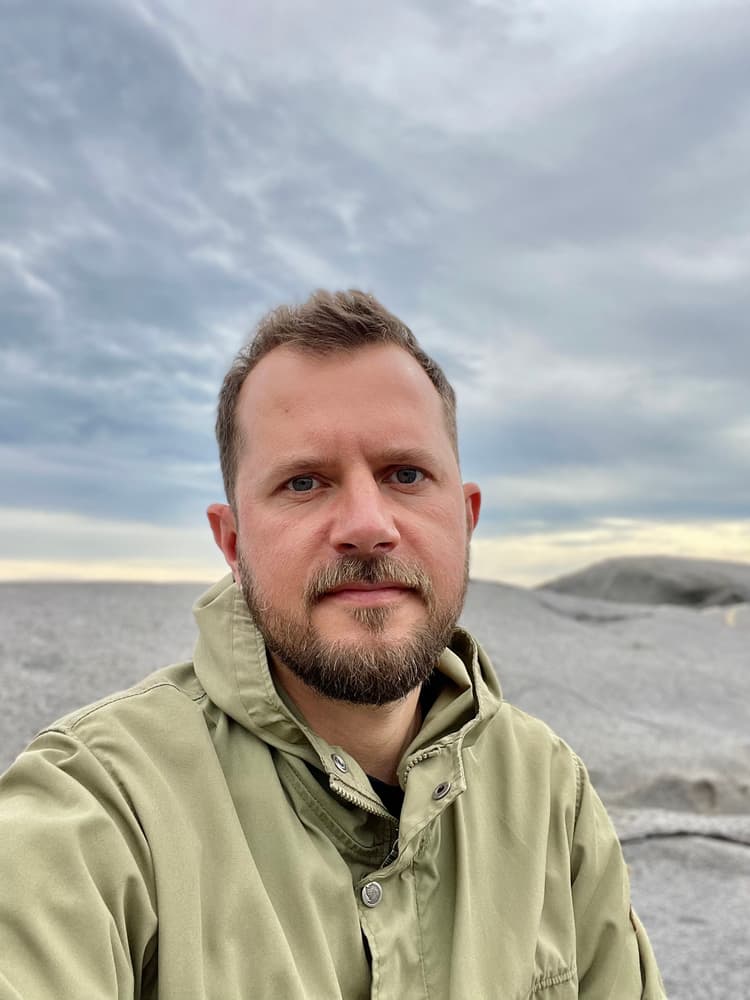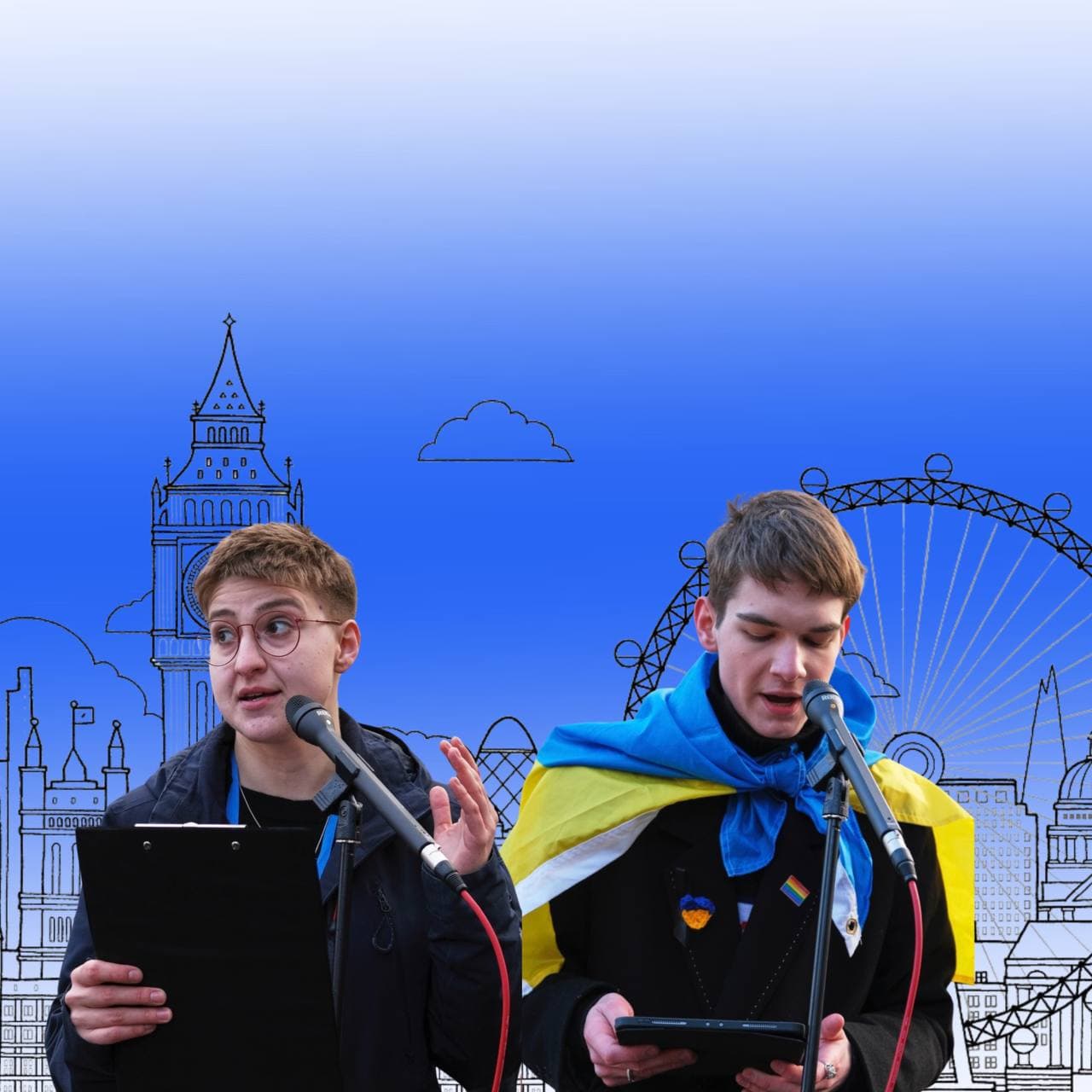Kysh (Andrei)
...Gebt nicht auf und verzweifelt nicht, tut, was ihr für richtig haltet. Russland wird auf jeden Fall frei sein.


In 2014, a documentary about Russian queer teenagers, “Children-404”, was released. The documentary coincided with the first anti-LGBT law in Russia. At the time, the purported purpose of the law was to protect children from undesirable information. According to lawmakers, it was through so-called propaganda of non-traditional orientation that children "became gay".
We decided to talk to the film's creators, Pavel Loparev and Askold Kurov, in 2024, when the Russian state declared the LGBTQ+ movement as extremist. In the interview, they talk about the film and about the internet project "Children 404", which gave its name to the film itself, a project that supports children whose existence the state turns a blind eye to.
Where are you currently based, and what projects are you working on?

Askold Kurov, Russian documentary filmmaker
Askold Kurov: I am now in Istanbul, where my partner and I arrived two years ago, after the war started. Pasha and I also teach at the online documentary film school "Unfilmed". It is an online school for Russian-speaking students around the world, whom we teach to make movies. On March 8, my new film "Of Caravan and the Dogs" will premiere at the Human Rights Festival in Geneva. I co-wrote it with a filmmaker whose name, unfortunately, I cannot yet disclose. It retraces events leading up to the full-scale invasion of Ukraine and during the first months of the war that were related to Russian independent media and human rights organizations.

Pavel Loparev, Russian documentary filmmaker
Pavel Loparev: I am now a creative producer, and one of the founders of an international movement of parents advocating for LGBTQ+ people called "Golos Plus". It is a new project and includes eight countries. The working language of the project is Russian, but you can also hear Armenian, Georgian, Belarussian, Romanian and Ukrainian. I am responsible for the media part. On our social media site we publish interviews with psychologists who talk about how to support children and themselves. We also provide information on how to properly communicate with LGBTQ+ people. We make short documentaries with stories of parents of queer children and record a podcast called "Support Group".
I joined the "Golos Plus” team as a representative of the educational project for parents of LGBTQ+ children "Illuminator", which my like-minded friends and I created 2 years ago, after the release of the movie "Children-404". In it, experts from different fields: psychologists, psychiatrists, sexologists, sociologists, and biologists talked about different aspects of sexual and gender identity, how it is formed, how to behave after a child comes out, and much more.
Unfortunately, at some point we made the difficult decision with the team to shut down the project completely, because some of the crew and specialists were or are still in Russia, and they did not feel safe. After this, the remaining members joined the Golos Plus project.
Askold and I also recently had the first public screening of a short film in Hamburg that we worked on together. It tells the story of a transgender man and his family, showing three generations trying to find a mutual understanding.
You've had screenings of Children 404 abroad, for example in 2014 in Prague. What was the experience with the audience like?
Pavel: It was one of the most impressive screenings, I think. The hall was packed to the brim, people were sitting in the aisles. And we didn't see Prague at all on that visit because we were doing interviews all the time. It was the largest number of interviews at one screening.
Askold: At the Mezipatra festival, where the program was mostly feature films, we won the Audience Award.
And it was the first time in the 20-year history of this festival that a documentary film won such a reward, and it was "Children-404".
The movie had a very successful festival life. It has been shown in many countries in Europe and the US. In Canada, we had its premiere at the Hot Docs festival, which is the largest documentary film festival in North America.
All the tickets were sold out and there wasn't a single empty seat. At that point, one of the characters in our movie, Justin (Pavel) Romanov, had already moved to Canada and was at this premiere. When he came on stage, the whole audience gave him a standing ovation.
[Note:] At the time of the film's release, a law on gay propaganda among minors in Russia had already been passed. Violating it was punishable by fines ranging from four thousand rubles (±40 EUR) to one million rubles (±10,000 EUR).
How do you think the situation in the country with regard to LGBT people, especially minors, has changed since the film was released?
Pavel: Queer adolescents in homophobic societies often have to live closeted lives. For many of the young people we interviewed, we were the first adults with whom they were able to talk openly about their identity. What was very surprising was their maturity and confidence that it is normal to be who they are and that what is happening to society is not normal. This gives hope that now they can also find support, even if it's online.
What was said 10 years ago is still relevant today: parents and children live in different information spaces, and they speak different languages. As a consequence, they have different views on the world, on politics and on themselves.
When we released “Children 404”, I felt very clearly the change of society's attitude towards LGBT issues. At first it was scary, because the law on propaganda was new, and it was unclear what it could threaten. But by 2018-2019, everyone got used to this repressive space. There was less anxiety and fear. The law turned into an abstract scarecrow, which in reality rarely worked.
But the situation soon changed again, and by 2021, many Russian LGBT human rights organizations were forced to leave the country. Administrative cases were brought to them, and they were fined, declared foreign agents, and searched. All this made their work very difficult, and some simply could not withstand such pressure.
Then a law was passed. It was a total ban on propaganda, then on transgender transition, and finally it all ended with LGBTQ+ people being recognized as extremists. I don't know if we should expect any more deterioration, but we can't expect any improvements in the near future.
Askold: Looking back, I remember that at that time it seemed to us that we were not living freely. But compared to what is happening now, when there is so much repression, I realize that we were much freer in the not so distant past.
I always think about teenagers, who even then were lonely and scared. it was impossible or very difficult to find someone to talk to, to be understood, or to get some advice, including professional advice. Now just being different from the majority has become much more dangerous.
In 2018, I shot the movie "Welcome to Chechnya" about the hunt for gay people in Chechnya. The characters in the movie went through a secret prison and through torture. They witnessed murders and absolutely inhumane actions. And, unfortunately, it seems to me that this future awaits Russia
What do you think would be the key instrument to fight homophobia in Russia?
Pavel: In one interview in 2017, at the peak rainbows in all senses, I thought that to change the situation it would help if Russian stars and public figures would come out, among whom there are quite a lot of queer people. In the current context, I can't even imagine such a situation. The propaganda machine is so well-honed, independent media has been destroyed, and civil society institutions are so intimidated and have been trampled. The only possible way out is to unite in smaller communities - to choose a strategy not of coming-out, but of coming in. In other words, not to come out of the closet but invite people whom you trust and with whom you can support each other in your closet. Another option is to leave the country, but not everyone can or wants to.
Askold: It is impossible to change the situation with the queer community in Russia without changing public opinion as a whole. In 2011-2013, not only the LGBT community, but the entire civil society failed to change the situation, because no one had a sense of danger that it would end the way it did. People who came to the Maidan in Ukraine said to themselves: "We will not leave until we win". Unfortunately, we in Russia left Bolotnaya then... It's hard to say why. Maybe there weren't enough of us, maybe we weren't scared enough, or maybe we didn't want a different future badly enough. But it turned out the way it did.
Pavel: I think the strength was simply unequal. The group of heroic people who came out to protest was not enough to stop this machine of repression, which had already set out to take over society and was only gaining momentum.
[Note:] The documentary "Winter, Go Away!" was made about these events and won many awards. Since then, every year it has become much more difficult to show an objective picture of contemporary Russian life, but documentary filmmakers continue to find ways to tell the world about social problems and political life in the country.
What trend in Russian documentary filmmaking do you see around you right now?
Askold: After the release of “Winter, Go Away”, something started to really change, and cinema became more politicized in a good way. If we talk about documentary filmmaking in Russia now, it is virtually impossible. It has become very difficult to film it, and most documentary filmmakers have left. A person just standing on the street with a camera can raise questions and suspicion from the police, let alone filming a protest.
Pavel: For the documentary filmmakers who remain in Russia, the possibility to continue filming is one way of coping with despair. With this material, it's unclear what's going to happen next, and whether they're going to be able to finish the movie. But they just pick up the camera and shoot what's happening now. It's very valuable.
What is the purpose of documentaries in general? Do you want to cause change, or is it just a way of expressing yourself?
Askold: This is a rather difficult question - Can documentary film change the world? Of course, I'm not naive enough to say yes, but I do believe that documentary movies can change a particular person, who in turn can change the world.
For example, the premiere of the aforementioned movie, "Winter, Go Away!", took place on Chistye Prudy in Moscow in the evening on the street when it was dark. There was an opposition camp "OccupyAbai", whose members organized the screening. They brought a generator, a screen, a projector, and we all watched this movie together at night. Their reaction was like, perhaps, that of the first movie-goers who watched the Lumière Brothers' "Arrival of the Train". They empathized with the characters, they argued with the characters in the film, they supported someone, they laughed, they were angry, and so on.
And then the film began to be invited to different cities, local activists organized screenings, raised money for travel expenses for some of the directors, and we went there just to watch and discuss the film together.
It was something completely new - some unexpected interest in documentary cinema. It was because it is the kind of movie that tells about what is happening now and talks about real people in a completely different language than in fiction or the news.
"Children 404" came out two years later, and it was a different period already. Because of the gay propaganda law that was passed, the movie was shown only four times in Russia, and they were disrupted by right-wing activists twice.
The most amazing screening was in Moscow at the "Delai Film "(Make Film) festival, when the organizers rented about 300 laptops and distributed them to all the audience with flash drives, and the audience in the hall sat down and watched the films on their own laptop. So it was not a public screening, which could be punishable under the propaganda law, but an individual viewing. And even after that, the organizers, Pasha and I still had problems with the prosecutor's office.
Owing to the Russian foreign agent law, the state of freedom of speech and the press in Russia is rapidly deteriorating. In the international human rights organization, “Reporters without Borders’” annual rating of freedom of speech, Russia ranked 164th in 2023.
What do you think is left for people living in Russia?
Pavel: That's a rather complicated question. As a person who has not lived in Russia for almost 10 years, I realize that so much has changed in the past two years that I don't fully understand how a person living in the Russian Federation feels.
I see the way out through unification and support. Each of us, who has the opportunity, can raise topics that are important to discuss and not to silence problems. We can help people to be heard, especially those whose voices are trying to be silenced.
Askold: Now the most challenging thing for people who remain in Russia is not to break down and lose hope. The state breaks people in many different ways and humiliates them, getting involved even in the most intimate aspects of their lives.
It is very important to try to preserve one’s self-respect and, most importantly, hope that one day everything will change. It cannot be otherwise.
So you still have that hope?
Askold: Yes, of course I do.
Pavel: Maybe not in our lifetime, but someday life in our country will change for the better.
People in Russia can't express their opinions openly, but they can disagree with what's going on, remind themselves that what's going on is wrong, even if they can't talk about it openly. That's a form of protest.
I see that now there is a nice trend to support people who stayed in Russia on social networks. Those who were able to leave say that we are proud of you, and you are great, simply because you remain true to yourself, to your beliefs. And that's very important to hear. Yes. There is very little hope, but that is the one thing that is hard to take away from us.
Dieser Artikel wurde noch nicht ins Deutsche übersetzt. Wir suchen nach Freiwilligen, die uns dabei helfen können.
...Gebt nicht auf und verzweifelt nicht, tut, was ihr für richtig haltet. Russland wird auf jeden Fall frei sein.

A person needs to know that they are not alone: exploring the work of Russian volunteers in London

Short biography of the freedom that never happened.

Unsere Medienplattform würde ohne unser internationales Freiwilligenteam nicht existieren. Möchten Sie eine_r davon werden? Hier ist die Liste der derzeit offenen Stellen:
Gibt es eine andere Art wie Sie uns unterstützen möchten? Lassen Sie es uns wissen:
Wir berichten über die aktuellen Probleme Russlands und seiner Menschen, die sich gegen den Krieg und für die Demokratie einsetzen. Wir bemühen uns, unsere Inhalte für das europäische Publikum so zugänglich wie möglich zu machen.
Möchten Sie an den Inhalten von Russen gegen den Krieg mitwirken?
Wir wollen die Menschen aus Russland, die für Frieden und Demokratie stehen, gehört werden lassen. Wir veröffentlichen ihre Geschichten und interviewen sie im Projekt Fragen Sie einen Russen.
Sind Sie eine Person aus Russland oder kennen Sie jemanden, der seine Geschichte erzählen möchte? Bitte kontaktieren Sie uns. Ihre Erfahrungen werden den Menschen helfen zu verstehen, wie Russland funktioniert.
Wir können Ihre Erfahrungen anonym veröffentlichen.
Unser Projekt wird von internationalen Freiwilligen betrieben - kein einziges Mitglied des Teams wird in jeglicher Weise bezahlt. Das Projekt hat jedoch laufende Kosten: Hosting, Domains, Abonnements für kostenpflichtige Online-Dienste (wie Midjourney oder Fillout.com) und Werbung.




Russland hat den Krieg gegen die Ukraine angefangen. Dieser Krieg dauert schon seit 2014 an. Er hat sich seit 24. Februar 2022 nur noch verschärft. Millionen von Ukrainern leiden. Die Schuldigen müssen für ihre Verbrechen zur Rechenschaft gezogen werden.
Das russische Regime versucht, die liberalen Stimmen zum Schweigen zu bringen. Es gibt russische Menschen, die gegen den Krieg sind - und das russische Regime versucht alles, um sie zum Schweigen zu bringen. Wir wollen das verhindern und ihren Stimmen Gehör verschaffen.
**Die russischen liberalen Initiativen sind für die europäische Öffentlichkeit bisweilen schwer zu verstehen. Der rechtliche, soziale und historische Kontext in Russland ist nicht immer klar. Wir wollen Informationen austauschen, Brücken bauen und das liberale Russland mit dem Westen verbinden.
Wir glauben an den Dialog, nicht an die Isolation. Die oppositionellen Kräfte in Russland werden ohne die Unterstützung der demokratischen Welt nichts verändern können. Wir glauben auch, dass der Dialog in beide Richtungen gehen sollte.
Die Wahl liegt bei Ihnen. Wir verstehen die Wut über die Verbrechen Russlands. Es liegt an Ihnen, ob Sie auf das russische Volk hören wollen, das sich dagegen wehrt.